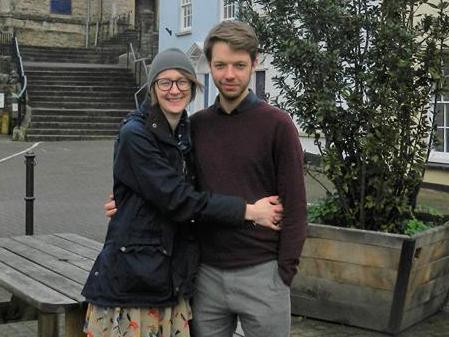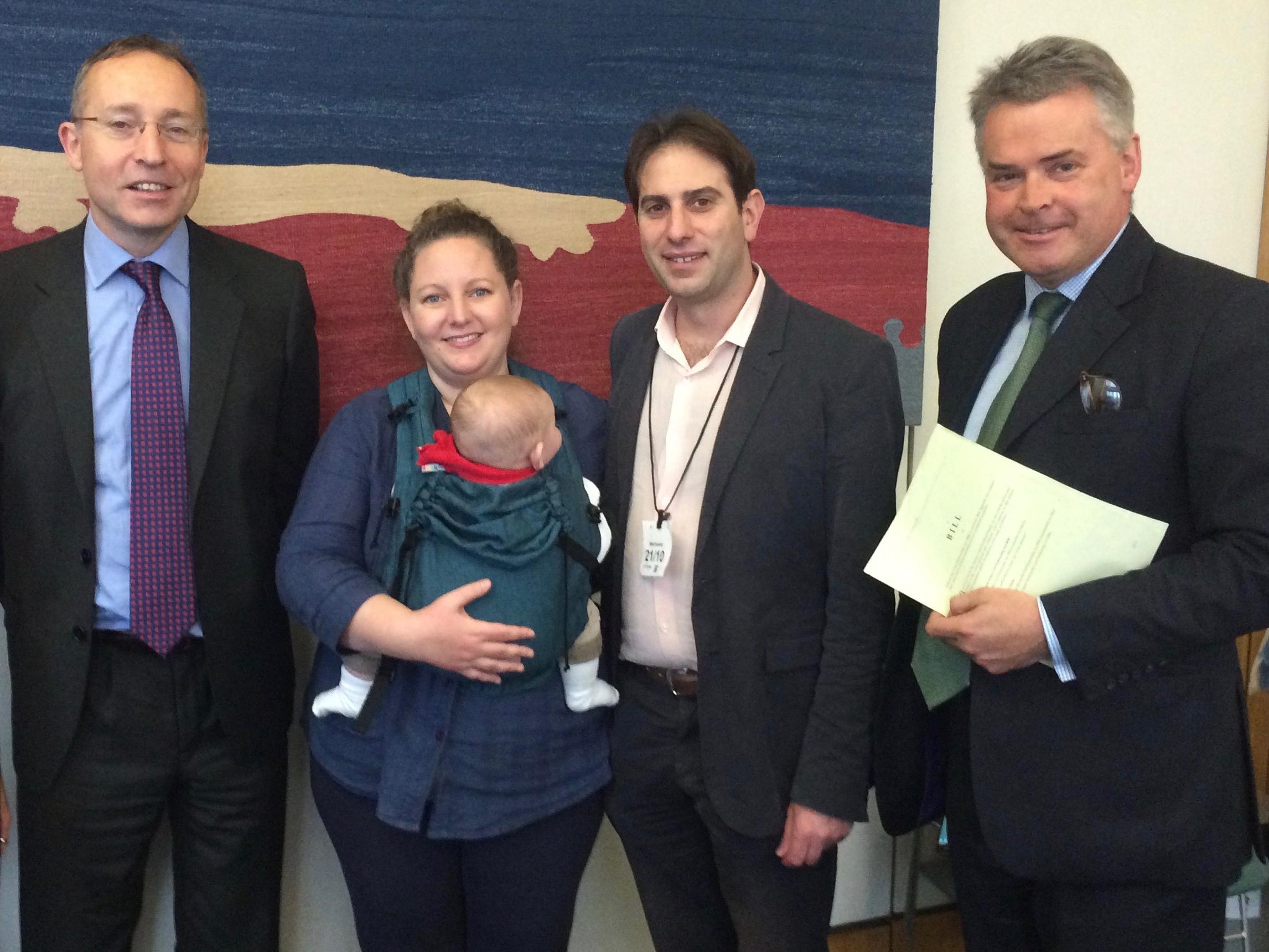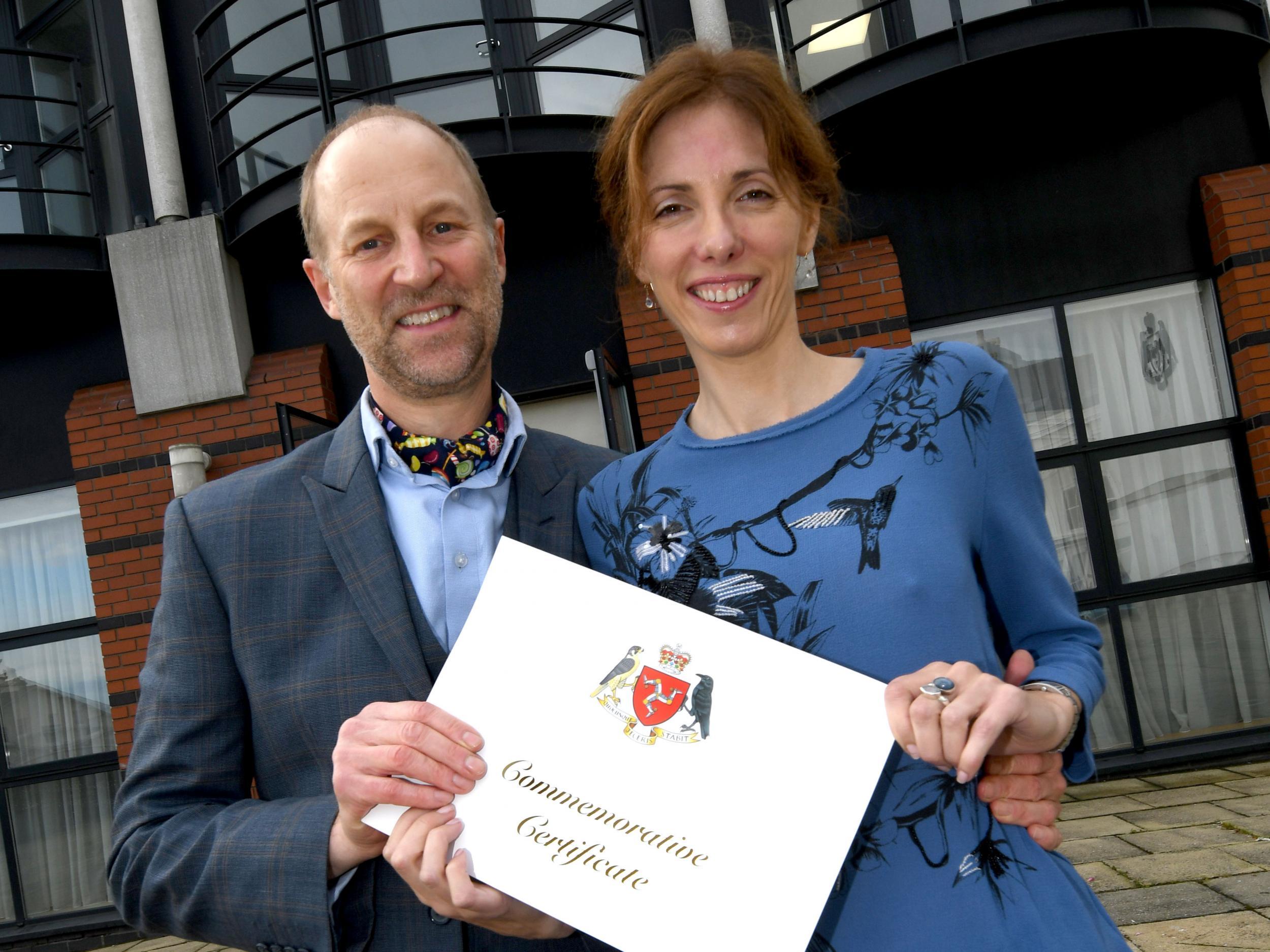Meet the heterosexual couples who do not want to marry - but want a civil partnership instead
While one couple has taken their fight to the High Court, another has had a civil partnership on the Isle of Man

Your support helps us to tell the story
From reproductive rights to climate change to Big Tech, The Independent is on the ground when the story is developing. Whether it's investigating the financials of Elon Musk's pro-Trump PAC or producing our latest documentary, 'The A Word', which shines a light on the American women fighting for reproductive rights, we know how important it is to parse out the facts from the messaging.
At such a critical moment in US history, we need reporters on the ground. Your donation allows us to keep sending journalists to speak to both sides of the story.
The Independent is trusted by Americans across the entire political spectrum. And unlike many other quality news outlets, we choose not to lock Americans out of our reporting and analysis with paywalls. We believe quality journalism should be available to everyone, paid for by those who can afford it.
Your support makes all the difference.A group of heterosexual couples are shunning marriage and rallying for the right to a civil partnership.
Civil partnerships were introduced in the UK in 2004 to give same-sex couples legal recognition and rights. Since then, gay marriage has been legalised in England and Wales. While both movements were heralded as a huge step forward for the LGBT community, there are now a community of heterosexual couples who want the right extended to them.
On Friday, a private members bill led by the Conservative MP Tim Loughton – and backed by MPs across the spectrum - will be debated in parliament which asks for 2004 Civil Partnerships Act to be amended to include heterosexual couples.
A petition launched by Charles Keidan and Rebecca Steinfeld (who both want to have a civil partnership) has so far amassed 75,000 signatures. The couple took their fight to the High Court in January, 2016 where the court ruled the fact they could not have a civil partnership did not violate their human rights. The couple appealed in November and are currently awaiting the verdict.
Here, in their own words, Keidan and Steinfeld and other couples who do not want to marry but want legal and financial recognition for their partnership explain their choice:
Charles Keidan, 40, and Rebecca Steinfeld, 35, London:
“We have been together for over six years and have a 19-month old daughter. Like many others, we don’t feel that marriage is right for us. We see each other as partners in life and want to be recognised as partners in law - not as husband and wife. Civil partnerships already exist, they are a modern social institution giving almost identical rights as marriage, but without the baggage. They should be opened up to opposite-sex couples, so that everyone has the choice, it is basic fairness that everyone should be treated equally under the law.

We became engaged to be civil partners in 2013, but we have always known that we wanted to formalise our relationship in a way that is in keeping with our values. Marriage and civil partnership are different social institutions. They have different histories, symbolic meanings, and sets of expectations. Those who do not feel that marriage is right for them, for whatever reason, should not be forced to marry or remain legally and financially vulnerable.
There are over three million cohabiting different-sex couples in Britain, with two million dependent children, who are legally and financially vulnerable. Unmarried different-sex couples are liable to pay inheritance tax, are not entitled to tax breaks, and in the event of separation, the primary child carer has no entitlement to receive financial support from their former partner. Whilst this is unfair for both parties, it is particularly punitive for women who are simultaneously more likely to be a child’s primary carer whilst also suffering from lower average earnings. Extending the legal protections of marriage through civil partnerships will ensure that, in the event of a relationship ending, all parties are protected. “
Matt Hawkins and Clare Phipps, both 27, London
“We first got together nine years ago. Neither of us feel like the terms husband and wife are right for us. We want legal and financial protection and recognition for our relationship but marriage comes with so many cultural associations, traditions, and expectations that just don't feel right for us.
We are painfully aware that should anything happen to either of us, the other partner would have no legal or financial protection despite the fact we live together and have done so for six years. We don't think that it's fair that, just because we don't think marriage is right for our relationship, we should be denied the legal and financial protection it offers. A civil partnership would give our relationship that protection and in a way that we feel more comfortable with. “
Martin Loat, 55, and Claire Beale, 50, London

“We are one of the three million or so ‘happily unmarrieds’. We are fine as we are and have proved it as much as any married couple have with our longevity (25 years and two teenage children). We don't see the need to take vows (religious or civil) underwritten by God or the state to validate that we have a firm relationship. Marriages fail any way. A civil partnership sums up who we are. Claire doesn't like being known as a “wife” and I don't like marriage’s references to one's private sexual activity with consummation and adultery being mentioned in marriage laws. That is up to us, not some cleric from the Middle Ages!
While the substantive differences are few, the main differences between marriage and civil partnership are mainly symbolic: When same-sex marriage became legal, many gay couples “traded up” to marriage from a civil partnership. Why? There must be a difference in their eyes , whether symbolic, romantic, emotional. So if you have a different-sex couple who are happy to take the leaner, modern option, what is wrong with that?
We are not asking for a new law to be erected just to suit our way of life, we just want to be able to have what is already on offer to a group with a different sexuality to us.
We recently had a civil partnership on the Isle of Man (where it is now legal). It was very functional, although we did read out the wording of the civil partnership certificate and we made promises to each other, no one else. We had a cheese toastie and cup of tea at a cafe over the road afterwards as our ‘civil partnership breakfast’.”
Join our commenting forum
Join thought-provoking conversations, follow other Independent readers and see their replies
Comments